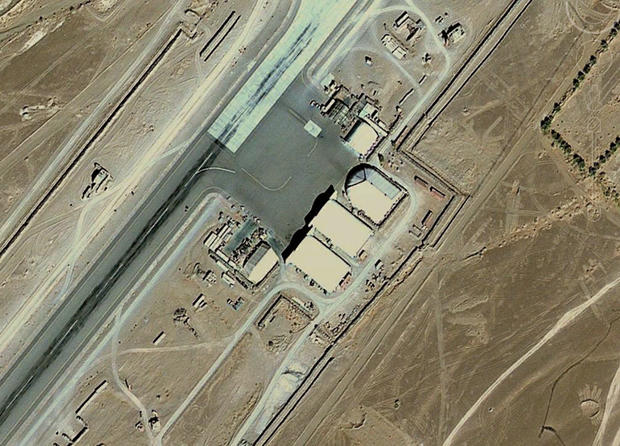U.S. vacates Pakistani air base
ISLAMABAD - The U.S. military on Sunday closed a chapter in its ties with Pakistan by vacating a remote airbase - caught in the crossfire following Islamabad's recently worsening relations with the Washington-backed Western alliance in Afghanistan.
A Pakistani official confirmed to CBS News that the U.S. military has left the Shamsi air base in Pakistan's south-western Baluchistan province, which in the past was reportedly used for operating the CIA's pilotless drone aircraft.
"The Pakistan Army has taken control of the facility," a Pakistan government minister told CBS News on Sunday.
Last month, Pakistani authorities ordered the return of the Shamsi airbase by December 11, among the retaliatory measures following the killing of 24 Pakistani military personnel in an attack by NATO helicopters on two Pakistan army posts on the Afghan border.
U.S. vacating Pakistan base used for drones
Other steps included a suspension of an important land route through Pakistan, used for carrying supplies to Afghanistan-based NATO troops.
On Sunday, Chaudhary Ahmed Mukhtar, Pakistan's defense minister, told CBS News, "We expect them (the U.S.) to leave the Shamsi air base as per our mutual agreement. As far as I know, the effort to vacate the airbase is continuing smoothly."
A senior Pakistan government official in Quetta, the provincial capital of Baluchistan, separately told CBS News on condition of anonymity that the Shamsi air base had "effectively" been taken over by Pakistan.
"The Shamsi base has effectively been taken over by Pakistan. The U.S. is practically out of there," he said. This follows reports of U.S. cargo planes landing at Shamsi in the past week, amid a widespread belief that they were deployed to vacate the base.
On Sunday, senior Western officials in Islamabad said that, while regrettable, the Shamsi episode may not necessarily jeopardize the U.S.-led effort to stabilize Afghanistan.
"I don't think this airbase will necessarily halt our work in Afghanistan, but this is a sad day which I will remember as another milestone in the worsening of Pakistan's relations with the Western world, especially the U.S.," said one senior Western diplomat in Islamabad who spoke to CBS News on condition of anonymity.
Meanwhile, a Pakistani foreign ministry official who also spoke to CBS News on condition of anonymity said that the country had not closed the option of reconciliation with the U.S., though he warned that Islamabad expects an unspecified "grand gesture" to overcome the recent strains.
"The killing of our soldiers is seen by Pakistan as a major setback to our confidence towards our Western partners in Afghanistan. A grand gesture is what is required to mend our fences," he said.
Though the Pakistani official did not specify the exact nature of the "grand gesture," the Western diplomat who spoke to CBS News on background said that Pakistan expects "a very public and a very high profile apology for the killings of its soldiers, possibly coming from (U.S. president) Obama himself."
Meanwhile, the future of the Shamsi air base remains surrounded with uncertainty, amid conflicting reports over Pakistan retaining the facility or passing it back to the United Arab Emirates (which originally leased the base and then passed it on the U.S. military). The Pakistani government official who spoke to CBS News from Quetta said it was possible that the Shamsi air base may be handed back to the UAE, whose royal family members are known to have used it in the past, for flying into Pakistan on trips dedicated to falconry.
